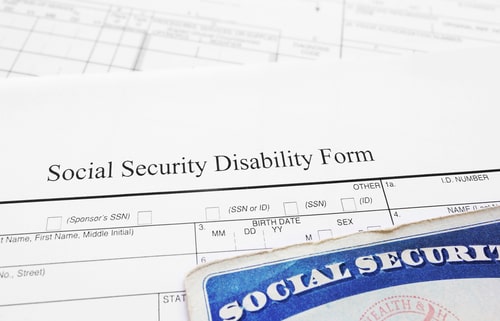Principal Office Located at 1424 Gables Court, Plano, TX 75075
Call Today For a Free Case Evaluation
Recent Blog Posts
What Is Substantial Gainful Activity in SSDI Cases?
 Substantial gainful activity (SGA) is the income level the Social Security Administration (SSA) uses to decide whether you are disabled enough to qualify for Social Security Disability Insurance (SSDI). If you earn more than the SGA limit, SSA may decide that you are able to work and deny your disability claim.
Substantial gainful activity (SGA) is the income level the Social Security Administration (SSA) uses to decide whether you are disabled enough to qualify for Social Security Disability Insurance (SSDI). If you earn more than the SGA limit, SSA may decide that you are able to work and deny your disability claim.
According to the Social Security Administration, the monthly SGA limit for 2026 is $1,690 for most individuals and $2,830 for people who are blind. This rule plays a central role in SSDI decisions. If you are applying for SSDI in 2026, our Dallas, TX social security disability insurance lawyers can help you understand how SGA affects your eligibility.
Can Disabled Adult Children With Autism Receive SSDI?
 Disabled adult children with autism may qualify for Social Security Disability Insurance (SSDI) if they meet certain federal rules. These benefits can provide a steady income for adults who cannot work because of a serious medical condition.
Disabled adult children with autism may qualify for Social Security Disability Insurance (SSDI) if they meet certain federal rules. These benefits can provide a steady income for adults who cannot work because of a serious medical condition.
Federal health data released in 2025 shows that about 1 in 31 children in the United States has been diagnosed with autism spectrum disorder. For many families, that means they will need to understand what support may be available in adulthood.
If you are making plans for your child in 2026, learning the rules now can help you avoid delays and confusion later. Our Collin County, TX SSDI lawyer can review your situation and help you decide what steps to take next.
Common Reasons for an SSDI Denial That You Can Fight
 Receiving a denial letter after applying for Social Security Disability Insurance (SSDI) can be discouraging. In reality, this is very common. In 2025, analysis by the Urban Institute showed that only about 36 percent of initial SSDI applications are approved, meaning most people are denied at the first stage and must appeal to move forward.
Receiving a denial letter after applying for Social Security Disability Insurance (SSDI) can be discouraging. In reality, this is very common. In 2025, analysis by the Urban Institute showed that only about 36 percent of initial SSDI applications are approved, meaning most people are denied at the first stage and must appeal to move forward.
As of 2026, the Social Security Administration (SSA) still allows applicants to challenge SSDI denials through a structured appeals process. If your claim was denied, guidance from our Collin County, TX social security disability lawyers can help you understand what went wrong and how to correct it.
Why Does Social Security Deny So Many SSDI Claims?
SSDI claims are often denied because the system applies strict rules and focuses heavily on paperwork. Social Security does not decide cases based only on a diagnosis. It looks at how a medical condition affects your ability to work full-time regularly.
Tips for a Successful Social Security Disability Application in Texas
 Applying for Social Security Disability benefits can feel overwhelming. This is especially true when you are dealing with serious health issues at the same time. Many applicants are denied the first time, not because they do not qualify, but because the application process is strict and documentation rules are unforgiving. As of 2026, the Social Security Administration continues to rely heavily on medical evidence and work history when reviewing claims.
Applying for Social Security Disability benefits can feel overwhelming. This is especially true when you are dealing with serious health issues at the same time. Many applicants are denied the first time, not because they do not qualify, but because the application process is strict and documentation rules are unforgiving. As of 2026, the Social Security Administration continues to rely heavily on medical evidence and work history when reviewing claims.
According to the most recent Social Security Administration’s Annual Statistical Report (released in 2025) on the Social Security Disability Insurance program, more than half of initial SSDI applications nationwide were denied at the first stage. If nothing else, this shows the importance of submitting a strong and complete claim from the beginning.
Can I Get Other Benefits While Receiving Disability?
 In many situations, you can receive other benefits while receiving Social Security Disability Insurance (SSDI). This issue comes up often for people who depend on monthly disability payments but still need help paying for medical care, food, or housing. As of 2025, federal disability rules still allow people receiving SSDI to qualify for certain state and federal assistance programs. You just have to meet each program’s specific eligibility requirements.
In many situations, you can receive other benefits while receiving Social Security Disability Insurance (SSDI). This issue comes up often for people who depend on monthly disability payments but still need help paying for medical care, food, or housing. As of 2025, federal disability rules still allow people receiving SSDI to qualify for certain state and federal assistance programs. You just have to meet each program’s specific eligibility requirements.
At The Law Offices of Coats & Todd, our Dallas, TX SSDI lawyers often speak with people who are unsure how these programs work together. Many worry that getting extra help could affect their disability checks. We can walk you through the benefits available to you under your unique circumstances.
Does SSDI Work With Other Benefit Programs?
SSDI is governed by the Social Security Act, Title II. It’s based on your work history and the payroll taxes you paid while working. Because SSDI is not based on financial need, it can often be combined with other programs that are income-based or needs-based.
Can You Get SSDI for Chronic Pain or Fibromyalgia?
 Living with chronic pain or fibromyalgia can create daily challenges. Tasks that used to be easy, like driving and working, can become overwhelming. If you are living with one of these conditions, you may be able to access benefits through Social Security Disability Insurance (SSDI). The process can be confusing because pain and fatigue are hard to measure, but we can help. Our Collin County, TX SSDI lawyers can help you understand how the system works, improving your chances of approval.
Living with chronic pain or fibromyalgia can create daily challenges. Tasks that used to be easy, like driving and working, can become overwhelming. If you are living with one of these conditions, you may be able to access benefits through Social Security Disability Insurance (SSDI). The process can be confusing because pain and fatigue are hard to measure, but we can help. Our Collin County, TX SSDI lawyers can help you understand how the system works, improving your chances of approval.
Does the SSA Recognize Fibromyalgia as a Disability?
The Social Security Administration (SSA) recognizes fibromyalgia as a possible disability under Social Security Ruling (SSR) 12-2p. To qualify, you must have medical evidence from a licensed doctor, usually a physician or rheumatologist. Your medical records need to show that you have widespread pain lasting at least three months. They should also describe symptoms such as fatigue, memory problems, or difficulty sleeping.
What To Expect at a Texas Disability Hearing
 When your Social Security Disability Insurance (SSDI) claim is denied, you have the right to appeal the decision. One stage of that appeal is the disability hearing. This is your opportunity to explain your situation directly to a judge and provide new evidence about your medical condition. If you are preparing for a disability hearing, our Plano, TX SSDI lawyers can help you understand what to expect and how to strengthen your case.
When your Social Security Disability Insurance (SSDI) claim is denied, you have the right to appeal the decision. One stage of that appeal is the disability hearing. This is your opportunity to explain your situation directly to a judge and provide new evidence about your medical condition. If you are preparing for a disability hearing, our Plano, TX SSDI lawyers can help you understand what to expect and how to strengthen your case.
What Is a Social Security Disability Hearing?
A disability hearing is a meeting with an administrative law judge (ALJ) from the Social Security Administration (SSA). Most hearings last between thirty minutes and one hour, depending on the complexity of your medical condition. Although it is not as formal as a courtroom trial, it is still a legal proceeding. During the hearing, the judge reviews your medical records, asks questions about your condition, and may hear from expert witnesses, such as vocational or medical professionals.
What To Do When Your Doctor Will Not Support Your SSDI Claim
 Applying for Social Security Disability Insurance (SSDI) is already a complex process. Having your doctor’s support can play a major role in your case. However, a doctor may refuse to complete disability paperwork, write statements, or explain your work limitations to Social Security. Even if that happens, you still have options. With strong documentation and guidance, you can continue pursuing your claim and protecting your rights. Our Dallas, TX SSDI lawyers can help you avoid mistakes and understand the steps you need to take.
Applying for Social Security Disability Insurance (SSDI) is already a complex process. Having your doctor’s support can play a major role in your case. However, a doctor may refuse to complete disability paperwork, write statements, or explain your work limitations to Social Security. Even if that happens, you still have options. With strong documentation and guidance, you can continue pursuing your claim and protecting your rights. Our Dallas, TX SSDI lawyers can help you avoid mistakes and understand the steps you need to take.
Why Would a Doctor Refuse To Support an SSDI Claim?
Doctors may refuse to support an SSDI claim for several reasons. Some doctors do not understand how SSDI works or believe it is difficult to qualify. Others may feel that you can still work in some limited form. In some cases, doctors do not complete forms because of time limits or office policies. It is also possible that your medical records do not yet show how severe your symptoms truly are, even if you have been struggling daily.
Can I Get Disability Benefits With Crohn’s Disease?
 Working when you are experiencing symptoms of Crohn’s disease, like pain, fatigue, and diarrhea, can feel impossible. Sudden flare-ups can disrupt daily life. When these symptoms make it hard to work full-time, you may qualify for Social Security Disability Insurance (SSDI). The application process is complex, and denials are common. Working with experienced Collin County, TX SSDI lawyers can help you build a strong case and improve your chances of approval.
Working when you are experiencing symptoms of Crohn’s disease, like pain, fatigue, and diarrhea, can feel impossible. Sudden flare-ups can disrupt daily life. When these symptoms make it hard to work full-time, you may qualify for Social Security Disability Insurance (SSDI). The application process is complex, and denials are common. Working with experienced Collin County, TX SSDI lawyers can help you build a strong case and improve your chances of approval.
Does the SSA Consider Crohn’s Disease a Disability?
The Social Security Administration (SSA) recognizes Crohn’s disease as a possible disability under Listing 5.06 of the Blue Book. This section covers inflammatory bowel diseases, or IBD. To qualify, your medical records must show serious problems such as intestinal bleeding, bowel blockages, anemia, or significant weight loss.
Can I Get SSDI and Workers’ Compensation in Texas at the Same Time?
 If you were hurt at work and cannot return to your job, you may qualify for both Social Security Disability Insurance (SSDI) and Workers’ Compensation. These programs have different rules but can sometimes overlap. Our experienced Plano, TX SSDI lawyers can help you understand how these two systems work together. We aim to protect your income and prevent any issues that may negatively impact your benefits.
If you were hurt at work and cannot return to your job, you may qualify for both Social Security Disability Insurance (SSDI) and Workers’ Compensation. These programs have different rules but can sometimes overlap. Our experienced Plano, TX SSDI lawyers can help you understand how these two systems work together. We aim to protect your income and prevent any issues that may negatively impact your benefits.
How Can SSDI and Workers’ Compensation Overlap?
SSDI is a federal program managed by the Social Security Administration (SSA). It pays monthly benefits to people who cannot work because of a long-term or permanent disability. To qualify, you must have enough work credits. You earn those credits by paying Social Security taxes while working. Under 42 U.S.C. § 423(d)(1)(A), a person is considered disabled if he or she cannot do "substantial gainful activity" because of a medical condition that is expected to last at least 12 months or result in death.

 972-671-9922
972-671-9922





